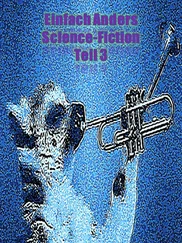Sarah Bolton - Famous Men of Science
Здесь есть возможность читать онлайн «Sarah Bolton - Famous Men of Science» — ознакомительный отрывок электронной книги совершенно бесплатно, а после прочтения отрывка купить полную версию. В некоторых случаях можно слушать аудио, скачать через торрент в формате fb2 и присутствует краткое содержание. ISBN: , Жанр: foreign_language, foreign_antique, foreign_prose, Биографии и Мемуары, на английском языке. Описание произведения, (предисловие) а так же отзывы посетителей доступны на портале библиотеки ЛибКат.
- Название:Famous Men of Science
- Автор:
- Жанр:
- Год:неизвестен
- ISBN:http://www.gutenberg.org/ebooks/35489
- Рейтинг книги:3 / 5. Голосов: 1
-
Избранное:Добавить в избранное
- Отзывы:
-
Ваша оценка:
- 60
- 1
- 2
- 3
- 4
- 5
Famous Men of Science: краткое содержание, описание и аннотация
Предлагаем к чтению аннотацию, описание, краткое содержание или предисловие (зависит от того, что написал сам автор книги «Famous Men of Science»). Если вы не нашли необходимую информацию о книге — напишите в комментариях, мы постараемся отыскать её.
Famous Men of Science — читать онлайн ознакомительный отрывок
Ниже представлен текст книги, разбитый по страницам. Система сохранения места последней прочитанной страницы, позволяет с удобством читать онлайн бесплатно книгу «Famous Men of Science», без необходимости каждый раз заново искать на чём Вы остановились. Поставьте закладку, и сможете в любой момент перейти на страницу, на которой закончили чтение.
Интервал:
Закладка:
A beautiful full-length, white marble statue of Sir Isaac was erected in the ante-chapel of Trinity College, where he had done his wonderful work, when scarcely more than a boy.
While he gave generously during his life, he said, "they who give nothing till they die, never give at all," – he left a personal estate of one hundred and sixty thousand dollars, to be divided among his nephews and nieces.
The world honored him at last, and has through all the years. Bishop Burnet said, "Newton had the whitest soul he ever knew." His habits were of the best. When asked to take snuff or tobacco, he declined, saying, "he would make no necessities to himself."
He was modest to the last, saying, "that whatever service he had done the public was not owing to any extraordinary sagacity, but solely to industry and patient thought." He said, a short time before his death: "I do not know what I may appear to the world, but to myself I seem to have been only like a boy playing on the seashore, and diverting myself in now and then finding a smoother pebble or a prettier shell than ordinary, whilst the great ocean of truth lay all undiscovered before me."
CARL LINNÆUS
It was on the 24th of July that we left Stockholm, the Venice of the North, built on her nine islands, for the famous university town of Upsala, Sweden. The ride, of about two hours by rail, lay along fine fields of wheat, blue with corn-flowers, and past comfortable-looking red farmhouses and barns.
The town, of thirteen thousand people, is quaint and quiet, yet most interesting to a stranger. We wander over the grand old Gothic cathedral, begun six hundred years ago. Here is the silver-gilt sarcophagus of King Eric IX., who died in 1160, and of John III. Here, also, that of Gustavus Vasa, the deliverer of Sweden, on a high marble pedestal supported by pillars, a recumbent figure of a wife on either side. A third wife is buried near by. The walls of the chapel where he lies are covered with frescoes, depicting scenes in that wonderful life; from the rags of the miner, to the sumptuousness of the throne.
But especially are we interested in a plain slab, underneath which sleeps the man who, more than any other, has immortalized Upsala University, and helped to make Sweden an intellectual and studious country. Near by is the monument of dark porphyry, with the plain, shaven face in bronze, wreathed with laurel, and the words " Carolo a Linné Botanicorum Principi Amici et Discipuli, 1798. "
Then we turn our steps to the University, the pride and hope of Sweden. Here fifteen hundred gather, not in dormitories – which were tried fifty years ago and discarded – but scattered in various homes, as in the German universities. Women are educated here on equal terms with men, and we are assured by the professors that, though admitted only a few years ago, their presence is most helpful, and the plan has proved entirely successful. No duels are allowed, these having been abolished by stringent laws two hundred years ago; a thing Germany should long since have done, and thus ended this brutal custom.
Here is the Astronomical Observatory, the Chemical Laboratory, Anatomy Building, Academic Department, and handsome library with two hundred thousand volumes and over seven thousand manuscripts. Here we look at the celebrated "Codex Argenteus," a translation of the four Gospels by Bishop Ulfila, dating from the second half of the fourth century, written on one hundred and eighty-eight leaves of parchment – gold and silver letters on a reddish ground; and the manuscript of Frithiof's Saga, by Tegnér.
Now we visit the Botanic Garden, which Linnæus so loved and developed, and go over the two-and-a-half-story stuccoed house, cream-colored, where the great naturalist lived and entertained princes. Under these dark poplars, enormous in size, he taught the pupils who came from all parts of the world to hear him. The dark, closed blinds are as he left them, for Sweden would not change one thing about the precious home. Too little in our own country do we treasure the homes of those who give honor to the nation.
The history of Linnæus is, indeed, a romance. Few have had such great struggles with poverty; few have come off such conquerors. Few lives have given to the world such lessons of cheerfulness, of perseverance, and of untiring industry. He was born, May, 1707, at Rashult, in the south of Sweden, the son of a poor minister, and the eldest of five children. The father, Nils Linnæus, had obtained his education by the hardest toil, and, while he had only poverty to offer his family, he gave them what money could not buy, tender affection, and the inspiring influence of a cultivated mind that loved nature and studied her closely. His mother, Christina, a woman of sense, prudence, and good judgment, was his idol. He wrote of her in later years: "She possessed all the virtues of her sex, devoting the utmost attention to impressing on my mind the love of virtue, both in precept and example."
From a child he was fond of his father's garden, and gathered from the fields all kinds of wild flowers. He says of himself in his autobiography: "He was scarcely four years old when he accompanied his father at a feast at Mökler, and in the evening, it being a very pleasant season of the year, the guests seated themselves on some flowery turf, listening to the pastor, who made various remarks on the names and properties of the plants, showing them the roots of the succisa, tormentilla, orchids, etc. The child paid the most uninterrupted attention to all he saw and heard, and from that hour never ceased harassing his father about the name, qualities, and nature of every plant he met with; indeed, he very often asked more than his father was able to answer, but, like other children, he used immediately to forget what he had learned, and especially the names of plants. Hence the father was sometimes put out of humor, and refused to answer him unless he would promise to remember what was told him. Nor had this harshness any bad effect, for he afterward retained with ease whatever he heard."
When he was eight, a piece of ground was assigned him, which was called "Carl's Garden." Here he gathered plants and flowers, and introduced so many rare weeds that his father had great trouble in eradicating them! So interested did Carl become, that he had nests of wild bees and wasps, not agreeable playthings usually.
But the play days with weeds and wasps came to an end, for the bright boy had to go to school. His first teacher was "a passionate and morose man, better calculated for extinguishing a youth's talents than for improving them," and the next "pursued the same methods, preferring stripes and punishments to encouragements and admonitions." There was little time now for the precious study of flowers. At seventeen he had to go to a gymnasium or high school, where he would be taught classics, and made ready for the ministry, like his father. He had no fondness for the languages, neither for theology or metaphysics: but having obtained two books on botany, he read them day and night, committing them to memory. The teachers and scholars called him "the little botanist."
Читать дальшеИнтервал:
Закладка:
Похожие книги на «Famous Men of Science»
Представляем Вашему вниманию похожие книги на «Famous Men of Science» списком для выбора. Мы отобрали схожую по названию и смыслу литературу в надежде предоставить читателям больше вариантов отыскать новые, интересные, ещё непрочитанные произведения.
Обсуждение, отзывы о книге «Famous Men of Science» и просто собственные мнения читателей. Оставьте ваши комментарии, напишите, что Вы думаете о произведении, его смысле или главных героях. Укажите что конкретно понравилось, а что нет, и почему Вы так считаете.












